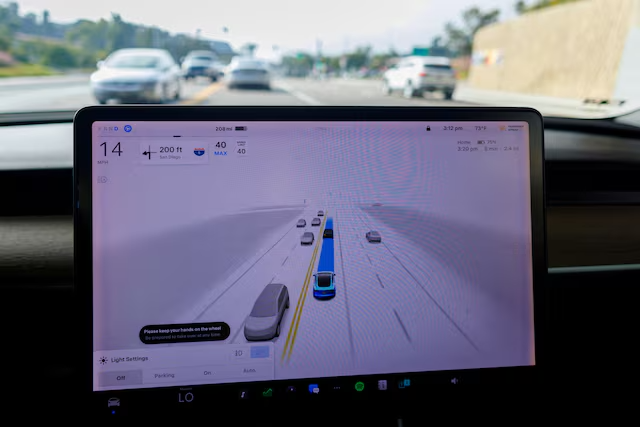
Tesla CEO Elon Musk made an unannounced visit to Beijing on Sunday, where discussions were expected to focus on the rollout of Full Self-Driving (FSD) software and the authorization to transfer data overseas, according to a source familiar with the matter. Musk reportedly met with Premier Li Qiang in Beijing, though the details of their conversation were not disclosed. However, during the visit, Tesla received a significant endorsement from a top Chinese auto association, which confirmed that Tesla’s Model 3 and Model Y vehicles comply with China’s data security requirements.
What is Full Self-Driving (FSD)?
Tesla’s Full Self-Driving (FSD) features, also referred to as Autopilot, include capabilities such as self-parking, automatic lane changes, and traffic navigation. Despite the branding, Tesla emphasizes that these features do not make their vehicles fully autonomous and require active driver supervision. Elon Musk has often touted FSD as a potential revenue stream for the company, although achieving full autonomy has been challenging due to regulatory and legal scrutiny of Tesla’s safety measures and marketing practices.
Why is FSD rollout limited in China?
While Tesla has offered FSD subscriptions in China for several years, the features have been restricted, limiting operations to automated lane changes. Data security concerns have been a major obstacle to a full rollout of FSD in China. Musk seeks official approval to transfer data collected in China overseas to train algorithms for autonomous driving technologies. Since 2021, Tesla has stored all data collected by its Chinese fleet within the country, as mandated by Chinese regulations, without transferring any data back to the United States.
What would an FSD rollout in China mean for Tesla?
A full rollout of FSD in China would allow Tesla to compete more effectively with local rivals in the world’s largest auto market, where driver assistance and connected car features are highly valued. With more than 1.7 million cars sold in China since entering the market a decade ago, Tesla’s Shanghai factory is its largest globally. An unrestricted rollout of FSD could intensify competition among Chinese automakers, potentially triggering a price war similar to the one Tesla initiated last year, involving over 40 brands in the country.
What might an FSD rollout mean for China?
China’s warm reception of Musk and the potential approval of FSD come amid efforts to improve foreign investment sentiment, particularly regarding regulatory issues such as data security. Tesla’s Chinese factory is located in a Shanghai free trade zone, and the approval of FSD aligns with Chinese authorities’ goals to foster competition and innovation in emerging technologies. Several Chinese automakers and tech companies, including XPeng and Huawei, are also developing similar autonomous driving software, reflecting China’s commitment to maintaining its leadership in this sector.
Read more on News Unveiled

